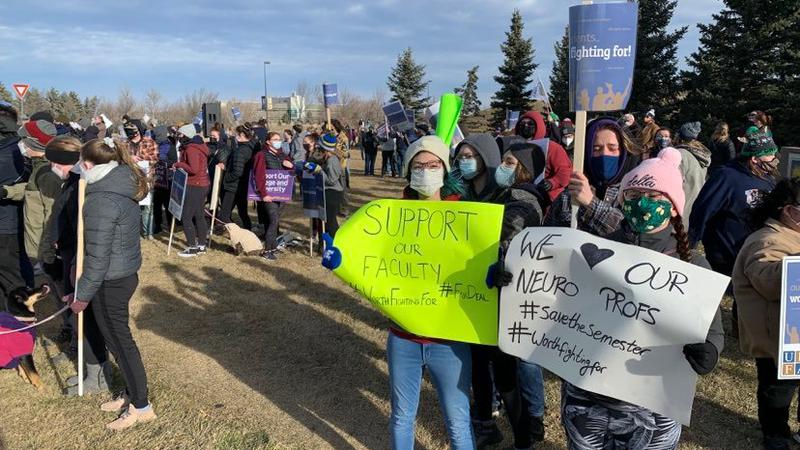
U of L Faculty vote 92% to strike, could start Thursday
LETHBRIDGE, AB – Educators at the University of Lethbridge (U of L) are set to hit the picket lines on Thursday, February 10.
The most recent Collective Agreement for academic instructors expired 587 days ago on June 30, 2020.
The U of L Faculty Association (ULFA) and the university’s Board have been unable to agree on a new contract since with several outstanding key issues still at play such as pay and benefits, academic freedom, and certain departments at the school being restructured.
The ULFA argued that its professors are already underpaid compared to other similarly-sized post-secondary schools and that they deserved more due to the constant stress and change due to the COVID-19 pandemic. The Board, however, has reminded faculty that it has lost millions of dollars in funding from the provincial government and is not in a great financial position.


